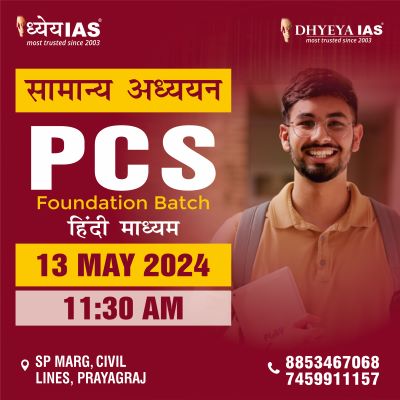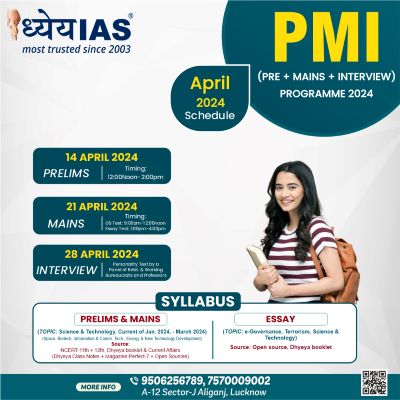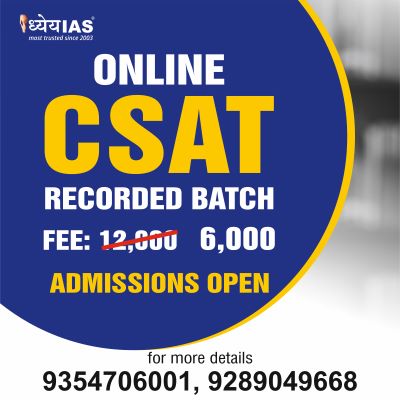Current Affairs Brain Booster for UPSC & State PCS Examination
Topic: Price of Crude Oil

Why in News?
- India has urged Organization of the Petroleum Exporting Countries (OPEC) and allied oil producers to ease production cuts as higher crude prices are hitting fuel demand in Asia's third largest economy and adding to inflation.
- The price of Brent crude crossed the $60 per barrel mark recently after over a year on the back of oil-producing countries maintaining production cuts and expectations of improvements in global demand as the Covid-19 vaccine is rolled out across the world.
Oil Prices in India
- The retail price of regular petrol hit a three-figure mark for the first time across the country after it was hiked by 26 paise to Rs 100.13 a litre in Rajasthan’s Sri Ganganagar on 17th Feb 2021, while diesel got dearer by 27 paise to Rs 92.13
- Fuel prices vary from state to state and taxes are levied on them by both central as well as the state governments.
- The government had hiked central taxes on petrol and diesel by Rs 13 per litre and Rs 11 per litre in 2020 to boost revenues amid lower economic activity.
- The increase in taxes had prevented consumers from getting the benefit of low fuel prices as international prices crashed during the first quarter of this fiscal and is now contributing to record high prices as international prices have recovered.
- Central and state taxes make up for 60% of the retail selling price of petrol and over 54% of diesel.
Crude Oil and India
- Nearly 160 different types of crude oil are traded in the global market with variation in viscosity, density, weight, fluidity and volatility.
- Crude oil is known by their geographical identities such as Brent Crude, Oman Crude, Dubai Crude, Organization of the Petroleum Exporting Countries (OPEC) Reference Basket, West Texas Intermediate (WTI).
- The Indian Basket of the crude price is a weighted average price of Brent, Oman and Dubai.
- India imports nearly 84 per cent of its crude oil requirements from abroad.
- Crude oil needs to be refined by refineries and Oil Marketing Companies (OMCs).
One-way Pricing Policy
- In the domestic market, fuel price is partly shaped by actual supply and demand, and mostly by taxation and dealer commission.
- India follows the dynamic fuel pricing system to determine the cost of petrol and diesel. Fuel prices are revised daily, and the government has no control over pricing.
- This means that if crude prices fall, retail prices should come down and vice versa. But this is just a theory and in practice this does not happen in India.
- When the global prices of crude oil increases, the burden is passed on to the consumer who pays the extra price for oil.
- When the reverse happens, government slaps fresh taxes and levies to ensure that it rakes in extra revenues.
- So the main beneficiary in this price decontrol mechanism is the government.
De-control of Fuel
- Fuel price decontrol has been a step-by-step exercise, with the government freeing up prices of ATF in 2002, petrol in the year 2010 and diesel in October 2014.
- Prior to that, the Government used to intervene in fixing the price at which the fuel retailers used to sell diesel or petrol.
- Fuels such as domestic LPG and kerosene still are under price control.
Reducing Oil Dependence
- The rise in the price of Brent crude will lead to an increase in India’s import bill.
- India is not able to contain the inflationary pressure due to the rising crude oil prices, Minister of Petroleum and Natural Gas Dharmendra Pradhan has said.
- PM Modi has said his government is sensitive to concerns of the middleclass and so has focussed on raising share of ethanol mixing in petrol.
- The government is working towards raising the share of natural gas in the energy basket to 15 per cent from the current 6.3 per cent and is committed to bringing it under the Goods and Services Tax (GST) regime to eliminate cascading effect of multiple taxes, he added.























